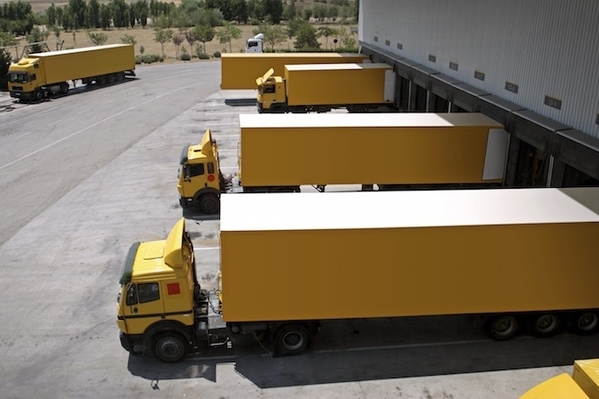The key to running a successful freight and transport business begins with the details. Every transport operation, no matter how large or small, needs meticulous planning to ensure smooth implementation. In the field of logistics, especially, businesses need to prioritise proper record-keeping, data tracking and analysis so that plans are well-informed and likely to lead to financial success. This can be utilised by using transport management solutions and logistics software.
The Requirements of Logistics Software Operations Today
As more companies go global, the scale of freight and transport businesses continues to expand. Proper logistics management and transport software remains a priority as supply chains become more complex and customer expectations continue to rise. Today, a single record mishap can have a huge domino effect on deliveries, making it imperative to have a reliable management strategy.
This is where computer-based freight management software comes in. Automated freight management software is one of the ways that logistics businesses can enhance the accuracy of their records and the efficiency of their operations. This software automates and performs operations that are prone to human error, with this software, companies can manage complex workflows without being overwhelmed.
Choosing the right transport management system greatly enhances the efficiency of any logistics service.
Given the many possible choices, it is only practical to ask: where do you start?
The Benefits of Freight Management Software
Understanding the different functions of freight management software is your first step in deciding which management software you most need. Some important functions include the following:
- Automated Workflows
Freight management software can be used to schedule and execute operations in a highly organised manner. Automating tasks helps companies become more efficient. By optimising these workflows, companies can ensure that they are maximising their current resources and working towards high levels of productivity. It includes the initiation of tasks like routine inventories and data reports without the need for constant user supervision with a TMS system.
- Operations Tracking
Large-scale freight operations involve many moving parts. Freight management software can comprehensively track the status of all these products and tasks, providing accurate real-time updates for managers. This helps the company monitor task completions for all phases of transport and distribution. It also allows the business to detect issues as and when they arise, allowing for prompt responses.
- Accurate Record-Keeping
Aside from keeping track of all real-time updates, freight management software compile and organise all the data involved in different logistics operations. These records are useful for managing inventories and tracking customer communication. Business owners can return to the recorded data whenever needed. A transportation management system can also use the data to measure overall performance and success.
- Accounts and Expenditure Management
Freight management software, especially if they are comprehensive Enterprise Resource Planning (ERP) software, can record, calculate and project the financial expenditures of the company. Instead of relying on hard copies of transaction sheets and multiple trackers from different finance account managers, the software can centralise all this data. It can help managers monitor the financial success of the company and assist them in pointing out possible problem areas to address.
- Data Tracking and Measurement
Freight management software can compile all of the above records and data and package them in an accessible manner by using graphs, figures and status reports. These findings are important so that companies can gain insight into their performance through quantifiable data, especially regarding positive and negative trends. Companies can adjust the TMS software to highlight their performance according to the key performance indicators that the company holds as its priorities.
Different Types of Freight Management Software

Freight and transport businesses, depending on scale and need, can utilise different freight management software. There are three types of software commonly used in freight operations:
- Enterprise Resource Planning (ERP) Software
ERP transport software is suitable for businesses looking to have the complete freight management planning package. Typically, this software encompasses the entirety of operations, especially those involving tracking resources and transactions. The software creates a reliable centralised hub that allows different departments to work with the same data and information. It includes tools for customer service, supply chain management and employee communication.
Freight management software is a type of ERP that focuses on the supply chain and logistics industry. Aside from running everyday business operations, freight management software has additional features for shipment tracking, cargo documentation and delivery data.
- Supply Chain Management (SCM) Software
SCM software is specialised software that focuses on facilitating the distribution of goods and services from supplier to customer. This logistics software handles inventories, communications and transactions, ensuring that companies can efficiently fulfil all phases of the supply chain. This capacity is highly important for those in the logistics sector as the main capital of these businesses is reliant on product procurement and distribution.
SCM is valuable for creating forecasts based on supplies and purchases. It allows companies to map out feasible business strategies based on significant data, helping refine the decision-making processes for future operations.
- Transportation Management Software (TMS)
TMS software, like SCM, is a specialised logistics platform that focuses on managing the transportation operations of the business. It optimises the transportation side by tracking vehicles and fleets, mapping efficient routes for delivery and processing orders and transactions.
TMS software helps ensure that businesses are maximising their delivery processes, helping contribute to financial success. Real-time tracking, for example, is beneficial for keeping status updates and optimising transport strategies in the future.
The Right Freight Management Software for Freight and Transport Businesses
Finding a freight management software provider that can adapt to the needs of any business helps logistics company thrive. Freight management software, while versatile, is best when it is adapted to the specific demands of a business.
At Infocomm, we provide ERP transportation management solutions that can perfectly match the freight management needs of your company. We specialise in software for warehouse, transport and supply chain management, helping companies perform large-scale and complex operations with relative ease. We have over 15 years of experience in the industry and are committed to creating innovative solutions for companies in the logistics sector.
Start using logistics management software now. Call us on +613-8514-0000.

